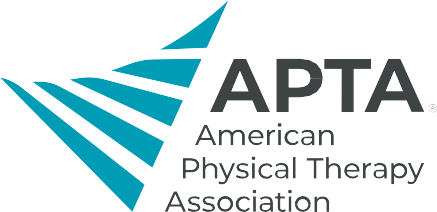APTA Federal Affairs Briefing Memo | March 2024

Federal Agencies
- UHC/Change Cyberattack: As providers continue to deal with cash flow interruptions in the wake of the largest-ever cyberattack on the U.S. health care system, the U.S. Centers for Medicare & Medicaid Services has stepped in to offer some temporary relief. In a program announced March 9, CMS outlined how qualified providers could receive accelerated or advance payments that would be repaid by way of automatic deductions from future claims.
- The program was launched in response to a Feb. 21, 2024, hack of Change Healthcare, a UnitedHealth Group subsidiary that manages multiple electronic data interchange systems including claims processing, billing, and payment. The resultant shutdown of Change systems has interrupted provider payment and made it difficult for patients to access care. Known as the Change Healthcare/Optum Payment Disruption program, or CHOPD, the plan offers accelerated payments to Medicare Part A providers and advance payment to Medicare Part B providers. In both instances, the amounts would reflect up to 30 days' worth of payments, with the exact amount on based on a formula — the total claims paid between Aug. 1 and Oct. 31, 2023, divided by three. After receiving the CHOPD payment from CMS, providers would repay through Medicare claims recoupment for 90 days, with a final payoff for any remaining amounts due on day 91. Additional details, click HERE.
- CMS Increases Data Access Fees: On February 12, 2024, CMS abruptly changed its research data request and access policies by severely limiting access to physical data extracts for external researchers starting new projects and tacking on thousands of dollars of new project renewal fees for continued access to physical copies of the data. Given the harmful effects this change could have on APTA member-researchers, APTA will respond to the agency’s request for information seeking comments from researchers in possession of physical data by the March 29th deadline.
U.S. Congress
- APTA Congressional Tracker: New APTA resource to track the various APTA-supported bills in the 118th Congress. Go to: APTA Legislative Update Bill Status | APTA
- Medicare Fee Schedule: After months of adopting temporary measures, Congress has approved a federal spending deal that provides partial relief to the 3.4% cut to the Medicare Physician Fee Schedule. The $460 billion package approved by both the Senate and House of Representatives includes a 1.68% boost in funding for the 2024 fee schedule’s conversion factor, leaving dozens of provider types including PTs with a 1.69% cut still in place. President Biden is expected to sign off on the package. Dubbed a "minibus" (as opposed to omnibus) package, the deal contains funding for the several but not all federal agencies, as well as the fee schedule partial relief. The plan won bipartisan support in both chambers, with the Senate approving the measure by a vote of 63-35, and the House passing the package by a vote of 339-85. Other areas of federal spending have yet to be resolved and face a March 22 deadline to head off a partial government shutdown.
- The spending measure essentially halved the cuts to the fee schedule conversion factor, which means dozens of provider groups are still facing significant, unsustainable reductions. What’s more, the relief is not retroactive to the Jan. 1 date of the fee schedule cuts but will be implemented after the president's signature. The plan also extends the work geographic practice cost index, or GPCI, floor through Dec. 31. GPCIs play an important role in determining Medicare payment amounts for services paid under the fee schedule by attempting to reflect the relative costs of work, practice expense, and malpractice in a geographic area compared with national average costs. The deal extends a provision raising the work GPCI to 1.000 for all localities that currently have a work GPCI of less than 1.000.
- APTA continues to work with provider partners including the American Medical Association to build on the strong bipartisan support in Congress for a proposal that will reform the fee schedule. The association, along with the American Occupational Therapy Association and the American Speech-Language Hearing Association, has already created a roadmap for reform via a set of policy principles, and bipartisan groups of lawmakers in both the House and Senate have voiced support for a permanent fix. Medicare payment and the need for reforms will be front and center as part of the APTA Day on Capitol Hill this April 15-16 in Washington, D.C. Participants will advocate in support of the Strengthening Medicare for Patients and Providers Act (H.R. 2474), which would provide an annual payment update to the fee schedule to keep up with inflation
- Falls Prevention: On March 11, 2024, APTA-backed bipartisan legislation was introduced in the U.S. House known as the Stopping Addiction and Falls for the Elderly Act, or SAFE Act (H.R. 7618),the legislation now in the U.S House of Representatives would make falls screening, including those conducted by PTs, a regular part of both the so-called "Welcome to Medicare" visit, officially titled the Initial Preventive Physical Examination, and the Medicare Annual Wellness Visit. The bill was introduced by Reps. Carol Miller, R-W.Va., and Melanie Stansbury, D-N.M.
- The idea behind the SAFE Act is twofold: to reduce falls among older adults and, through that reduction, to decrease opioid use that often occurs after a fall injury. Specifically, the bill would ensure that beneficiaries who were identified by their physicians as having experienced a fall in the year prior to their Initial Preventive Physical Examination would be referred to a physical therapist for screening and preventive services. In addition, beneficiaries who've been enrolled in Medicare for at least a year and who choose to participate in an annual wellness visit (different from an annual physical) would be referred for a separate falls risk assessment and potential additional PT services if the annual wellness visit reveals that they've fallen within the previous year. The SAFE Act aligns with APTA’s ongoing public policy priorities of expanding health benefits under federal programs, such as Medicare, to include coverage for preventive and wellness services provided by physical therapists to help reduce downstream costs. This priority legislation will be part of APTA’s Capitol Hill Day on April 15-16 in Washington, DC.
- O&P – A senate companion bill to the Medicare Orthotics and Prosthetics and Patient Centered Care Act (H.R. 4315) by Senators Mark Warner (-VA) and Steve Daines (R- MT). This legislation would ensure that Medicare beneficiaries are able to access the orthotic and prosthetic devices they need through three major provisions. First, ensure that Medicare beneficiaries have timely access to a replacement custom-fitted and custom-fabricated orthosis if an ordering physician determines that a replacement orthosis is necessary due to a change in the physiological condition of the patient, there has been an irreparable change in the condition of the orthosis, or the cost of repairs would be excessive. Under current law, Medicare beneficiaries often wait years before the Medicare program will cover a replacement orthosis, regardless of whether the orthosis is medically necessary. Second, put into law an exemption from competitive bidding for physical therapists, occupational therapy practitioners, orthotists and prosthetists, and physicians when providing off-the-shelf, or OTS, orthoses to Medicare beneficiaries in the course of their practice, allowing these providers to furnish OTS orthoses without a competitive bidding contract. Finally, reduce the likelihood of waste, fraud, and abuse by prohibiting “drop-shipment” of all custom-fitted and custom- fabricated orthoses and all prostheses to a Medicare beneficiary’s home without any clinical intervention by a provider or supplier. This would result in significant cost- savings to the Medicare program while protecting patient access to clinical assessments, fittings, adjustments, and other related clinical care. More info at: https://www.warner.senate.gov/public/index.cfm/pressreleases
- Telehealth: On March 12, 2024, Rep. Carter (R-GA) reintroduced a version the Telehealth Modernization Act (H.R. 7623) which proposes to make permanent many of the pandemic- era telehealth flexibilities and waivers granted to the Medicare program. Most importantly for APTA members and their patients, the bill includes language that makes PTs and PTAs permanent authorized providers of telehealth to Medicare beneficiaries. Substantively, this would have the same effect the APTA-endorsed bill, the Expanded Telehealth Access Act (H.R. 3875/S. 2880). While APTA supports the Telehealth Modernization Act (H.R. 7623); APTA’s priority telehealth bill and focus of support the Expanded Telehealth Access Act (H.R. 3875/S. 2880).
- 2024 Congressional Physical Activity Challenge: Registration is now open for members of Congress and their staff to participate in the 2024 Congressional Physical Activity Challenge. This is an annual competition involving the offices of the U.S. Congress in a bid to achieve the highest level of physical activity. The Challenge is held each May for the duration of National Physical Fitness and Sport Month (May 1-31) and open to all members of Congress & their DC- based congressional staff and interns, committee staff and leadership staff. The deadline for Hill offices to register is April 1, 2024. The Challenge is facilitated through a collaboration between Myzone and the Physical Activity Alliance; APTA has a seat on the Physical Activity Alliance Board of Directors. FALs and Key Contacts are encouraged to share this information with their members of Congress including the following information sheet that provides additional details, including how Capitol Hill offices can register.
Advocate Engagement Opportunities
- APTA National Advocacy Dinners – PT/PTA programs are encouraged to host APTA National Advocacy Dinners during April. This student program is intended for programs to get together, share a meal, and learn how they can be lifelong advocates. More information is coming in mid-March.
APTA Articles of Interest
- Article |APTA Fee Schedule Calculator Updated to Reflect Recent Changes | APTA
- News | CMS Offers Accelerated and Advanced Payments in Response to Change Cyberattack | APTA
- News | Mercer U. Three-peats Student Advocacy Challenge Win | APTA
- News | APTA-Backed Senate Resolution Focuses on 'Epidemic of Burnout' in Health Care | APTA
- News | APTA-Backed Legislation Beefs Up Falls Screening, Prevention by PTs in Medicare | APTA
- News | Spending Deal Reached: Includes Some Relief From Fee Schedule Cuts | APTA
- News | Massive Cyberattack: UnitedHealth Group Offers Workarounds, HHS Weighs In | APTA
- News | CMS Unveils New, High-Priced Restrictions on Access to Medicare, Medicaid Data | APTA
- Magazine | Going Straight to the Source: Direct-to-Employer Services | APTA


